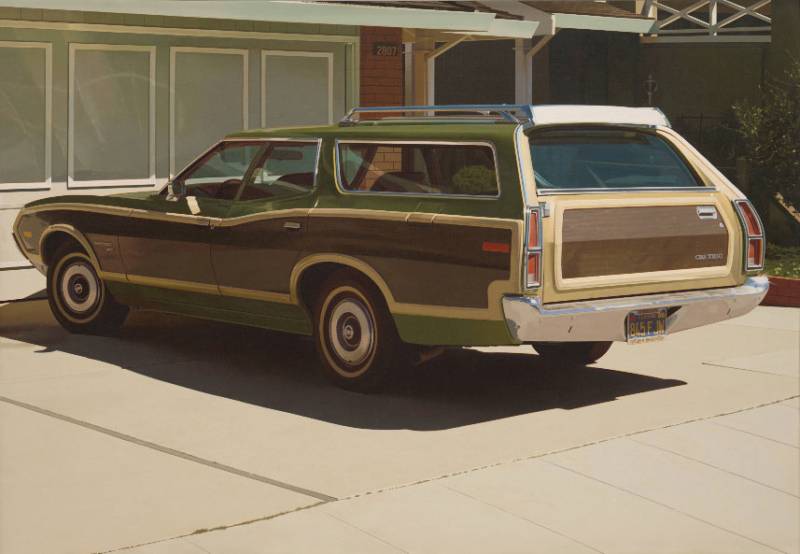
Robert Bechtle, whose paintings of cars, families and intersections transformed the mundane into the captivating, died Thursday morning. He was 88.
A longtime Bay Area resident, Bechtle was one of the figureheads of American photorealism, alongside artists such as Robert Estes, Ralph Goings and Chuck Close. Seeking to conceal brushstrokes in order to convey the look of a photograph, Bechtle painted everyday street scenes of suburban life that resembled Kodak prints, lending their middle-class banality a magical aura.
Watch a KQED profile of Robert Bechtle below:
Bechtle was born in San Francisco and raised in Sacramento and Alameda. At the start of his career, in the 1950s and 1960s, the Bay Area art world was entranced with abstract expressionism of figures and landscapes.


